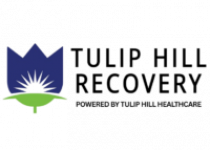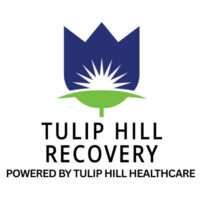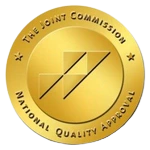If you’re exploring addiction treatment for yourself or someone you love, you may be wondering how 12-step programs fit into recovery and what to expect from treatment at Tulip Hill Recovery. This guide walks through common questions about the types of addictions we treat, levels of care like detox, PHP, and IOP, how insurance works, and how we support both individuals and families throughout the healing process.
Which addictions does Tulip Hill Recovery treat?
Tulip Hill Recovery treats a wide range of substance use disorders. This includes alcohol addiction, opioid use disorders involving substances such as heroin, fentanyl, and prescription painkillers, as well as benzodiazepine misuse (like Xanax, Klonopin, and Ativan). We also work with individuals struggling with methamphetamine and cocaine use, along with prescription stimulant misuse, including medications such as Adderall and similar drugs.
In addition to substance use treatment, we offer comprehensive dual-diagnosis care. That means we address both addiction and co-occurring mental health concerns, such as depression, anxiety, and post-traumatic stress disorder (PTSD). By treating both conditions at the same time, we aim to help you build a more stable, sustainable foundation for long-term recovery.
How do I decide between Detox, PHP, or IOP?
Choosing between Detox, Partial Hospitalization Program (PHP), and Intensive Outpatient Program (IOP) depends on your current symptoms, medical needs, and life circumstances. Many people start with a conversation and assessment with our admissions team to determine the safest and most effective level of care.
If you are likely to experience withdrawal symptoms or need medical supervision to stop using substances safely, medically supervised detox is usually the best first step. During detox at Tulip Hill, a clinical team monitors your physical and emotional wellbeing, helps manage withdrawal symptoms, and keeps you as safe and comfortable as possible while your body stabilizes.
Once detox is complete, or if you do not require detox, PHP may be a good fit if you need a high level of structure and support during the day without staying overnight. PHP typically involves attending treatment most days of the week, participating in individual and group therapy, learning coping skills, and working closely with a clinical team, all while returning home or to a sober housing environment in the evenings.
IOP is designed for people who need flexibility as they maintain work, school, and family responsibilities. In IOP, you attend therapy and support sessions several times per week, often during mornings or evenings. The focus is on relapse prevention, emotional regulation, healthy routines, and continued support from peers and clinicians, while giving you the space to practice these skills in everyday life.
Does Tulip Hill accept insurance for people from Brentwood, TN?
Yes. Tulip Hill Recovery works with most major insurance providers in Tennessee, including individuals and families coming from Brentwood and nearby communities. Because every insurance plan is different, we offer a free, confidential verification process. Our team will review your benefits, explain your coverage in clear terms, and help you understand any potential out-of-pocket costs before you begin treatment.
What if my insurance doesn’t cover the full cost of treatment?
Finances can be a major concern when seeking help, and we understand how stressful that can feel. If your insurance does not cover all aspects of treatment, Tulip Hill offers private pay options as well as financing and payment plans. Our goal is to remove as many barriers as possible so that cost does not stand between you and the care you need. During the admissions process, a team member will talk through your options and help you find a workable plan.
How involved can families be in the treatment process?
Addiction affects the entire family system, not just the individual. For that reason, we strongly encourage family involvement throughout the treatment process. At Tulip Hill Recovery, families can take part in dedicated family therapy sessions designed to improve communication, rebuild trust, and create healthier patterns at home.
We also provide education about addiction, mental health, and recovery so that loved ones better understand what the person in treatment is going through. This combination of support and education helps families move from crisis and confusion toward stability, empathy, and healthier boundaries.
Why might someone from Brentwood choose to travel to Murfreesboro for treatment?
It might seem more convenient to seek treatment close to home, but many people from Brentwood and other surrounding areas intentionally choose to attend treatment in Murfreesboro. One of the main reasons is privacy and anonymity. Being in a different community allows you to focus fully on recovery without worrying as much about being seen by coworkers, acquaintances, or neighbors.
A change in environment can also reduce exposure to triggers. When you are away from familiar places, routines, and social circles associated with substance use, it can be easier to break old patterns and resist urges. In addition, a new setting often creates a sense of a fresh start. Many people find that this shift in location and environment supports a mental shift as well, helping them feel more ready to leave old habits behind and commit to change.
What therapies and supports does Tulip Hill offer beyond detox?
Detox is only the beginning of recovery. At Tulip Hill, we provide an integrated, holistic approach that addresses your emotional, psychological, and physical wellbeing. Individual therapy allows you to work one-on-one with a clinician using evidence-based approaches such as Cognitive Behavioral Therapy (CBT) and Dialectical Behavior Therapy (DBT) to explore underlying issues, learn new coping skills, and set meaningful goals for your life.
Group therapy offers an opportunity to connect with peers who understand what you are going through. Sharing experiences, challenges, and successes within a supportive group setting can reduce feelings of isolation and provide encouragement. Family therapy is available to help heal strained relationships, address hurt or confusion, and create healthier patterns of interaction at home.
For individuals who have experienced trauma, we offer trauma-informed care, including options such as EMDR (Eye Movement Desensitization and Reprocessing). This type of care is designed to help you process traumatic experiences in a safe and structured way, with the guidance of trained professionals.
Our holistic wellness services round out the treatment experience. These may include mindfulness practices, meditation, yoga, nutrition support, and experiential activities that promote emotional regulation and physical health. Together, these therapies and supports are designed to treat the whole person—not just the symptoms of addiction.
Start your journey to healing
Taking the first step toward treatment can feel overwhelming, but you do not have to navigate it alone. When you call or message Tulip Hill Recovery, you’ll connect with a compassionate admissions coordinator who understands how difficult this moment can be. They will listen to your story, answer your questions, and guide you through each step.
We begin with a free assessment, asking about your substance use, medical history, mental health, and any immediate concerns. Based on this information, we help you determine the most appropriate level of care, whether that is detox, PHP, IOP, or another option. We then verify your insurance benefits and explain your coverage in a straightforward way, so there are no surprises.
Once you feel ready to begin, we work with you to choose a start date. In many cases, we can schedule your intake within the same week, allowing you to move quickly from uncertainty into a structured plan of support.
If you are ready to take that step, we encourage you to reach out and start your recovery now.
Supporting families through recovery
At Tulip Hill Recovery, we recognize that family members often carry their own pain, confusion, and worry when a loved one is struggling with addiction. Our family support services are designed to help loved ones feel less alone and more empowered. Through weekly family therapy sessions, educational workshops, and support groups, families learn more about addiction, recovery, boundaries, and communication.
Communication skills training is often an important part of this process. Many families find that over time, the ways they talk to each other have become defensive, reactive, or shut down altogether. In family-focused sessions, we work on building healthier ways to express needs, manage conflict, and offer support without enabling destructive behavior. The goal is to help the entire family system move toward healing.
If you are a loved one seeking guidance, you do not have to wait for someone else to be “ready” to begin. You can reach out to our team today to learn how our family program can support you and your family’s recovery journey.
Contributors
Medically Reviewed By:
Dr. Vahid Osman, M.D.
Board-Certified Psychiatrist and Addictionologist
Clinically Reviewed By:
Josh Sprung, L.C.S.W.
Board Certified Clinical Social Worker
Accreditations & credentials
Tulip Hill Recovery maintains a strong commitment to quality and safety. We hold The Joint Commission’s Gold Seal of Approval®, CARF International’s three-year accreditation, and LegitScript verification for advertising compliance. We follow HIPAA standards to protect patient privacy and are members of ASAM (the American Society of Addiction Medicine), aligning our work with science-based treatment standards.
Tulip Hill is also verified on Psychology Today, accredited by the Better Business Bureau with an A– rating, and a member of the Nashville Chamber of Commerce. These affiliations reflect our ongoing dedication to ethical practices, community engagement, and high-quality care.
Our treatment services and insurance coverage
We offer a full continuum of care that includes drug and alcohol addiction treatment, mental health treatment, medically supervised detox, and structured programs such as PHP and IOP. Many clients are relieved to learn that their insurance plan does cover detox and rehab services, and a significant number of people end up paying little to nothing out of pocket after benefits are applied.
If you’re unsure what your insurance covers, our team can verify your benefits and walk you through the details. Even if your coverage is limited, we will help you explore payment options and work to find a path that makes treatment possible.
Getting to Tulip Hill Recovery
Whether you are traveling from Brentwood, another part of Tennessee, or a nearby state, our team can help you plan your arrival and answer practical questions about transportation, what to bring, and what to expect on your first day. Reaching out is the first step; from there, we will guide you through the rest.









